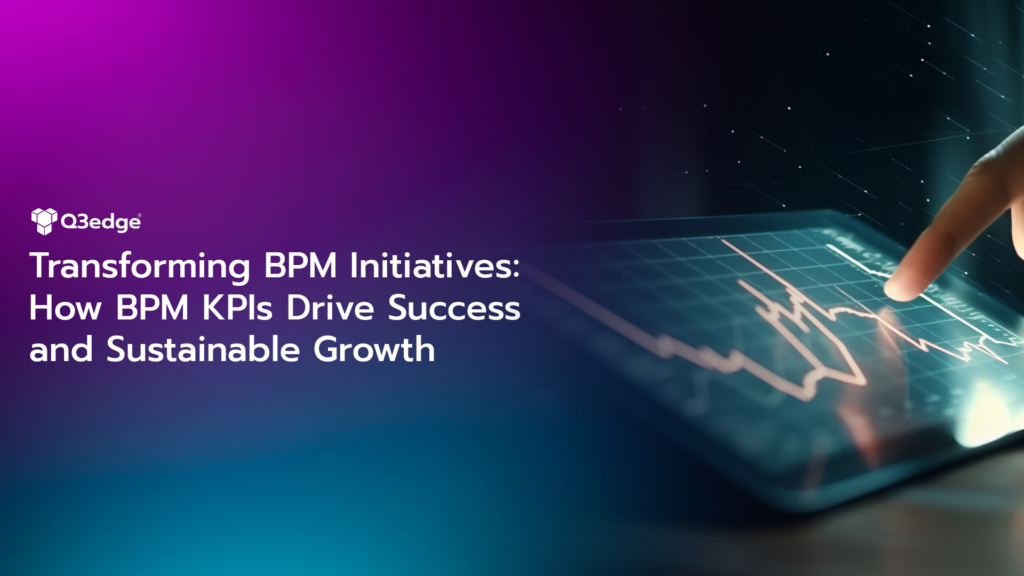Transforming BPM Initiatives: How BPM KPIs Drive Success and Sustainable Growth

In today’s fast-paced business world, staying competitive requires more than just good intentions. Organizations must constantly evaluate and improve their processes to meet customer expectations, adapt to market changes, and ensure sustainable growth. This is where Business Process Management (BPM) comes into play. But to truly know whether BPM initiatives are delivering value, businesses need clear, measurable indicators. These indicators are known as BPM KPIs (Key Performance Indicators).
In this blog, we’ll break down the importance of BPM KPIs, how they help transform BPM initiatives, and how they contribute to long-term business success and growth.
What Are BPM KPIs?
BPM KPIs are specific, measurable metrics used to evaluate the effectiveness and efficiency of business processes. Think of them as health check-up parameters for your business operations. They help you monitor what’s working, what isn’t, and where improvements are needed.
For example, some common BPM KPIs include:
- Cycle time (How long a process takes)
- Error rates (How many mistakes occur during a process)
- Customer satisfaction scores
- Process compliance rate
- jj3edge
- Cost per process
By using Business Process Management KPIs, businesses can gain insights into process performance and make data-driven decisions.
Why Are BPM KPIs Important?
BPM KPIs are not just numbers on a report; they are critical tools for strategic decision-making.
Here’s why they matter:
1. Track BPM Initiative Success
Without KPIs, it’s hard to tell whether a BPM project is making a real difference. BPM KPIs show the actual impact of process changes by comparing current performance with previous benchmarks.
2. Support Continuous Improvement
Process improvement is not a one-time activity. With the help of BPM KPIs, businesses can continuously monitor and fine-tune their operations.
3. Align Processes with Business Goals
Effective BPM KPIs ensure that all process improvements support broader business goals like increased revenue, customer satisfaction, or regulatory compliance.
4. Enable Better Decision-Making
With real-time insights from BPM KPIs, managers can make informed decisions rather than relying on guesswork.
5. Enhance Transparency and Accountability
When everyone in the organization understands what is being measured and why, it builds a culture of accountability and performance.
Transforming BPM Initiatives with BPM KPIs
Let’s look at how BPM KPIs can breathe new life into your BPM efforts:
1. Setting Clear Objectives
Every BPM initiative should start with clear goals. Whether it’s reducing processing time or improving quality, BPM KPIs help define what success looks like.
2. Monitoring Real-Time Performance
Modern BPM tools can track KPI performance in real-time. This means issues can be spotted and addressed before they snowball into bigger problems.
3. Identifying Bottlenecks
By analyzing cycle time or throughput KPIs, businesses can identify where delays are happening and take corrective action quickly.
4. Improving Customer Experience
Customer-facing processes can be measured using KPIs like response time or satisfaction ratings. These insights allow businesses to make changes that directly improve customer experience.
5. Ensuring Compliance
In regulated industries, compliance KPIs ensure that processes follow legal and industry standards, helping avoid costly penalties.
6. Driving Innovation
Continuous monitoring of BPM KPIs often uncovers new opportunities for innovation, such as automating routine tasks or adopting new technologies.
Case in Point: Q3edge’s BPM Expertise
One of the leading BPM consulting firms in India, Q3edge, has helped several organizations transform their BPM strategies using effective BPM KPIs. Their approach is centered on aligning business processes with strategic goals and setting the right KPIs to measure success.
For instance, Q3edge worked with a healthcare provider to improve their patient onboarding process. By identifying and tracking key BPM KPIs like onboarding time and error rates, they reduced process time by 30% and improved accuracy by 40%, directly impacting patient satisfaction and operational efficiency.
Q3edge emphasizes that BPM KPIs should be:
- Relevant to the process and business objectives
- Measurable with available data
- Actionable to drive improvements
- Transparent so all stakeholders can understand them
How to Choose the Right BPM KPIs
Not all KPIs are created equal. Here are steps to select the most effective BPM KPIs for your organization:
- Understand Your Business Goals: What are you trying to achieve? Increased efficiency? Better customer service?
- Map Your Processes: Use process mapping to understand how work flows and where metrics can be applied.
- Identify Critical Touchpoints: Focus on areas where small improvements can have a big impact.
- Involve Stakeholders: Collaborate with teams to choose KPIs that matter to them.
- Review and Refine: Regularly update your KPIs based on changing goals or new insights.
Common Mistakes to Avoid
While BPM KPIs are powerful, they can backfire if misused. Here are some pitfalls to watch out for:
- Tracking too many KPIs (leading to analysis paralysis)
- Choosing irrelevant or hard-to-measure KPIs
- Ignoring the human aspect (e.g., employee morale or collaboration)
- Failing to act on KPI insights
Final Thoughts: The Road to Sustainable Growth
In conclusion, BPM KPIs are essential tools for transforming BPM initiatives into engines of success and sustainable growth. They provide a clear picture of how your processes perform and where improvements are needed. By setting the right KPIs and regularly reviewing them, organizations can ensure they are always moving in the right direction.
Partnering with a BPM expert like Q3edge can make this journey smoother and more effective. With their guidance, you can align your process goals with business outcomes and use BPM KPIs to drive meaningful transformation.
Remember, what gets measured gets managed—and what gets managed gets improved.
